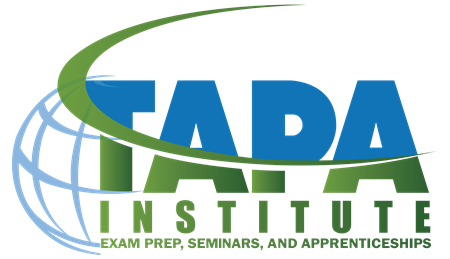Practical Stress Management Tips for Accountants to Stay Focused
Accountants are essential in managing finances, but the demands of the job can lead to stress. Whether it is a time constraint or a difficult task to accomplish, stress is something that an accountant cannot avoid. Thankfully, there are many different approaches to addressing stress and achieving a good work-life balance. With Dr. Sabine Charles at the helm, TAPA Institute provides stress coaching, particularly for accountants, business executives, and key personnel, to empower them to manage stress and achieve better health. It is now time to look at some strategies that can be used by accountants to lessen stress and increase efficiency.
1. Prioritize Time Management
Stress can be prevented by effectively managing time. Many accountants are assigned to carry out multiple tasks, and if one is not well planned, the workload can easily balloon. Managing time involves setting priorities and subdividing them with the aid of tools that assist in time management. Time-blocking and calendars help set priorities and make a clear distinction between the activities. TAPA Institute stresses the need to avoid overloading by designing practical schedules.
2. Practice Mindfulness and Relaxation Techniques
Stress-relieving measures, including deep breathing exercises or meditation, should also be useful to accountants. Stepping aside for short periods reduces cortisol and increases attention span, as well as being healthy. These techniques improve the precision and serenity of work, in particular if time constraints are involved. Dr. Sabine Charles also points to the benefits of mindfulness, as it aids in decision-making processes and alleviates stress. Experts also provide instructions on how best to incorporate these practices into an individual’s daily schedule for maximum stress reduction.
3. Take Breaks and Get Rest
Working for long hours without taking a break increases the likelihood of getting burnt out. Taking a short time off during the day is very important in breaking the body and the mind. A five-minute walk or simple stretching is sufficient to restore damped energy and alleviate tension. Besides, it is important to get a sufficient amount of sleep every night. To reduce stress, accountants should strive to get between seven and eight hours of sleep every day.
4. Seek Support and Delegate When Necessary
Most of the time, accountants work under a lot of pressure, but outsourcing some of the tasks may help to ease the pressure. Talking to colleagues or supervisors about expectations means the pressure is divided, and it becomes easier to handle. Mentoring and peer discussions also provide the audiences with catharsis and new insights. Creating a good support network, whether at the workplace or otherwise, is elemental in managing stress among accountants.
5. Professional Coaching for Stress Management
Stress control is one of the areas where professional coaching helps. Experts provide stress coaching for accountants, which focuses on learning about the causes of stress and how to deal with these sources. Coaching provides specific solutions unique to a person’s difficulties, increasing their competence in the ways of coping within and beyond the workplace. Through stress-reduction coaching, accountants can be empowered to manage stress and improve efficiency when working under stress.
6. Learn to Say No
Overloading is another crucial source of stress that is witnessed among accountants. One of the most important things that needs to be learned is how precisely to set limits and say no at work. Accountants should negotiate deadlines, come to agreements, and be specific about what can and cannot be achieved with the clients or other co-workers. Others have called not saying yes unnecessarily a strength because it will likely lead to one being burnt out and unable to handle stress.
7. Promote Healthy Interactions in The Workplace
Improving the relationship with co-workers and clients helps cut stress in the working environment. Cooperative work and effective communication with group members simplify work tasks and enhance organizational relationships. The authors have found that when accountants’ organizational belongingness needs are fulfilled, stress levels are reduced and job satisfaction increases. Further, positive work relationships make it easier to seek help from their colleagues, when necessary, thus increasing a sense of peoplehood in organizations.
Conclusion
Stress at the workplace is universal, including accountants, who, if well equipped, can minimize the effects of stress. Another is schedule time management, focused attentiveness, time for refreshing, a healthy lifestyle, and help-seeking as ways to minimize stress. Stress coaching by Dr. Sabine Charles at the TAPA Institute provides helpful tools for building up sustainable coping capabilities. That is why an accountant can enhance work productivity and personal and professional health by practicing stress prevention strategies.

